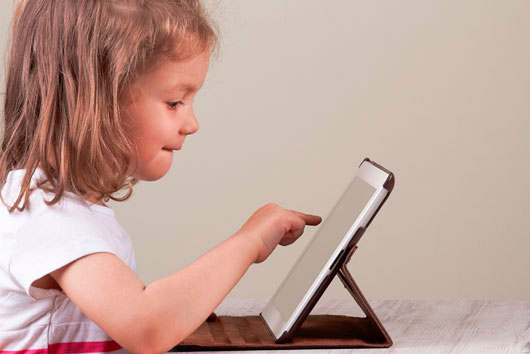
On May 9, 1960, the birth control pill was approved by the Food and Drug Administration. The pill was made by Chicago based company G.D. Searle Company and was commissioned by birth control pioneer Margaret Sanger. Both Sanger and pill development funder Katherine McCormick were hoping for a practical, effective alternative to the contraceptive methods that were available at that time.
The pill was then and continues to be one of the most popular and effective methods of birth control, empowering women to take their fertility into their own hands. As we celebrate the pill, we’re reminded that we’ve got some explainin’ to do with our own children when it comes to birth control. In case you do too, here are 20 things to discuss with your kids to ensure they are happy, healthy and safe when it comes to birth control and sex.
What does a mama bear on the pill have in common with the World Series? No cubs. —Harry Caray
1. Preventing STDs is just as important as preventing pregnancy. While a pregnant teenager might seem like your worst nightmare, sexually transmitted diseases and infections can be just as life changing.
Read Related: Sex Talk: When & How to Educate Your Kids
2. You can get pregnant the first time you have sex. Why this has been ignored by teenagers since the beginning of time is beyond us. But it’s true that many young people believe you cannot get pregnant the first time you have sex!
3. You can get pregnant during your period. While it’s certainly less likely, it can still happen so don’t forget to mention it.
4. Even though birth control isn’t a factor, oral sex does count as sex. And it comes with its own set of risks and emotional investment from both partners. Discuss.
5. Abstinence is the best form of birth control. And STD prevention!
6. If you are going to have sex, use a condom to prevent STDs as well as pregnancy. Even if your daughter is on the pill (maybe especially if she is!) it’s important to reinforce that the purpose of condoms isn’t just pregnancy prevention but also keeping STDs away.
7. “Outercourse” If you are going to be sexually active, there are lots of things you can do that don’t involve penetration. And they won’t cause pregnancy and there’s a much lower risk of STDs.
8. Anal sex isn’t the best option for preventing pregnancy. Anal sex may reduce the risk of pregnancy but it poses a whole new set of risk factors for other health issues and infections.
9. Withdrawal is not an effective form of birth control and you still risk STDs. Some of the Mamiverse team can personally attest to the lack of pregnancy prevention the withdrawal birth control method offers. Seriously. And, of course, without a condom, there’s still a risk of disease or infection.
10. Knowledge is an excellent way to prevent pregnancy. Talking to your kids and providing sex education has been proven to be the most effective way to support them to prevent their own pregnancy. Whether by practicing safe sex or not having sex at all, knowledge prevents pregnancy.
11. Access to birth control is vital for preventing pregnancy when teens are sexually active. While some parents have issues with high school nurses having condoms available for students who ask for them, we think it’s great to provide easily accessible, effective birth control to the teens who may or may not choose to be sexually active.
12. Expense of birth control. Could the cost of sex include money? Absolutely when we’re talking about shelling out $30 per month or more for the pill! Explaining that every effective method of birth control (aside from abstinence) costs money can be very valuable for your child.
13. Expense of having a baby. If more teens understood the financial ramifications of bringing a child into this world, perhaps they’d be more cautious when engaging in sexual activity.
14. Explain the different types of birth control and how they work. You should be able to get a pamphlet from your gynecologist or family doctor to help you with this one.
15. Always keep the lines of communication between you and your teen open. Not just about sex. About everything.
16. Discuss how to deal with a partner who doesn’t want to use birth control. Try something silly but catchy: Got an erection? Use protection! or It will be sweeter if you wrap his peter! Your teen may be completely embarrassed but the message is there and some of the sayings are quite catchy!
17. Make sure your teen understands the reality of an STD. Some sexually transmitted diseases, like herpes and HIV, are with you for life. Other infections, like Chlamydia, can lead to serious problems including infertility when left untreated. Also, HPV is linked to cervical cancer. Teens should be armed with information in order to make safe decisions.
18. While you’re discussing sex, point out that ‘sexting’ could come back to haunt your teen—once something’s on the Internet it’s there forever. From episodes of CSI to Lifetime Original movies, there’s plenty of media support to back you up when you stress the importance of privacy for any and all sexual acts.
19. Even if you are on some form of birth control, still use condoms to prevent STDs. The pill and other forms of birth control are just that… birth control. There’s no STD prevention without a physical barrier like a condom, so encourage the use of them!
20. Encourage your teen to come to you with any questions or concerns that they have. By having open, honest discussions about sex and birth control with your kid, you’re inviting them to reopen the conversation later when they have questions or concerns. And believe it or not, each time you have a new version of ‘the talk,’ it gets easier and less awkward, we promise.












